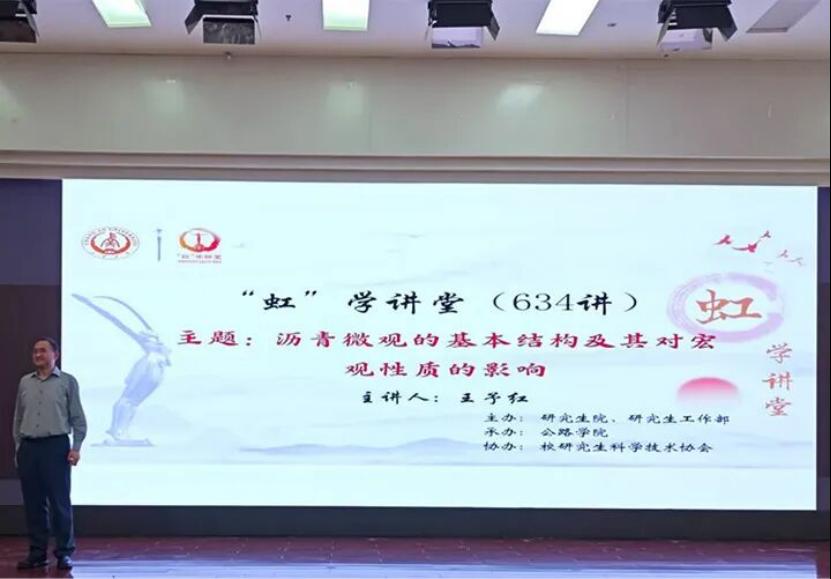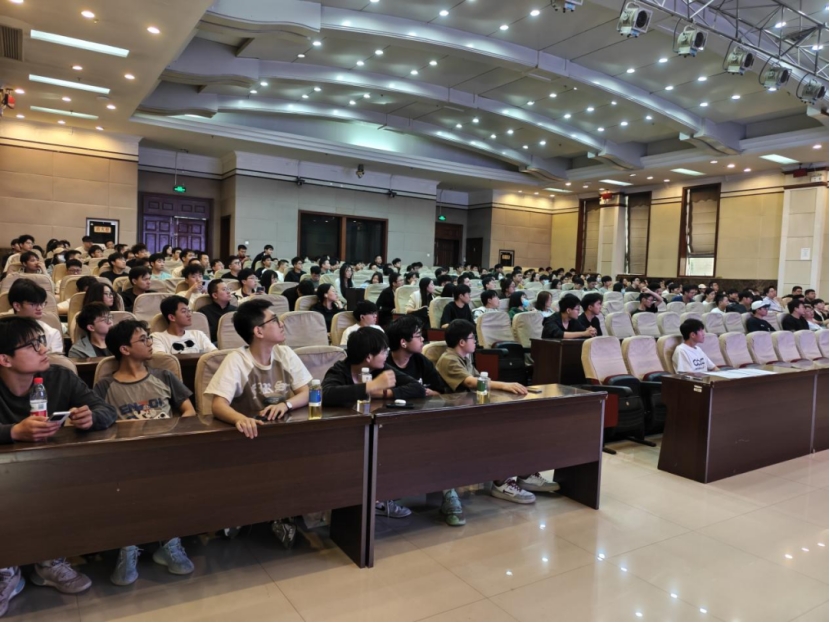On the morning of April 24, the 634th session of the "Hong" Academic Lecture Series was successfully held at the Bosheng Lecture Hall in the East Campus of the South Campus. The event was hosted by the Graduate School and the Graduate Student Affairs Office, organized by the Highway School, and co-organized by the University Graduate Student Science and Technology Association. Professor Wang Yuhong from The Hong Kong Polytechnic University delivered a report titled "Basic Microstructure of Asphalt and Its Impact on Macroscopic Properties." The lecture was chaired by Associate Professor Wen Yong from the Highway School, with over 200 faculty members and students from related colleges in attendance.

Professor Wang Yuhong Delivers the Report
The report primarily focused on two aspects: research hotspots in asphalt binder studies and an overview of the research conducted by Professor Wang's team.
First, Professor Wang Yuhong began by addressing the "black box" of asphalt research, highlighting his team’s breakthrough achievement—the first direct observation of asphalt’s internal structure using transmission electron microscopy (TEM). This revealed the impact of asphaltene’s flake and needle-like morphologies on performance,changing the traditional understanding of asphalt as a homogeneous material.
In the section on engineering applications, he explained that asphalt aging results from the increased size of asphaltene agglomerations, and adding corn oil or rejuvenators can decompose large particles and restore performance. Related technologies have been applied in the EU’s "Urban Natural Laboratory" project and Hong Kong’s "Future Smart Road System" project, promoting the development of green road construction.
Finally, Professor Wang emphasized the importance of "decrypting the microscopic black box" for the development of smart cities and engaged in in-depth discussions with faculty and students on topics such as intelligent self-healing technologies and the environmental friendliness of rejuvenators.

Lecture Scene



